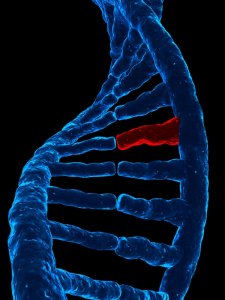
different mental diseases
 Five seemingly different mental health disorders—major depression, bipolar disorder, schizophrenia, autism, and attention-deficit hyperactivity disorder—may be more alike than we think. A ground-breaking new study has identified a handful of genes that are shared by people with these disorders. This work could help find new and better ways to diagnose and treat mental illness.
Five seemingly different mental health disorders—major depression, bipolar disorder, schizophrenia, autism, and attention-deficit hyperactivity disorder—may be more alike than we think. A ground-breaking new study has identified a handful of genes that are shared by people with these disorders. This work could help find new and better ways to diagnose and treat mental illness.
Back in 2007, researchers from 19 countries formed the Psychiatric Genomics Consortium. Since then, the group has analyzed DNA from 33, 000 people with major depression, bipolar disorder, schizophrenia, autism, or attention-deficit hyperactivity disorder and another 28, 000 without one of these disorders. In the group with mental illness, four regions of the genetic code carried the same variations. The team’s report, published online yesterday in The Lancet, was led by Dr. Jordan Smoller, director of psychiatric genetics at Massachusetts General Hospital and professor of psychiatry at Harvard Medical School.
Two of the affected genes help control the movement of calcium in and out of brain cells. That might not sound like much, but this movement provides a key way that brain cells communicate. Subtle differences in calcium flow could cause problems that, depending on other genes or environmental factors, could eventually lead to a full-blown mental illness.
What’s next?
We’ve known for years that some major mental health conditions run in families. This is especially true for bipolar disorder, major depression and schizophrenia. Scientists are making progress in identifying genes associated with certain mental health diseases, for example, won’t immediately help clinicians either diagnose mental illness or give individuals a warning that they are at risk for it. That’s because the genetic variants the researchers discovered are weak risk factors for the five diseases.
“Each one of them, by themselves, still accounts for a small amount of the risk, ” Dr. Smoller told the Boston Globe. “The fascinating thing is there might be such variants that cross our clinically-distinct syndromes.”
There are many paths to mental illness. But the Psychiatric Genomics Consortium report offers tantalizing hints that bipolar disorder, major depression, and schizophrenia—and possibly autism and attention-deficit hyperactivity disorder—may not be so distinct after all, but could be different manifestations of the same underlying disorder. This could change the way we view mental illness and open the door to more effective therapies. And who knows—this work could even open up paths to preventing mental illness.









